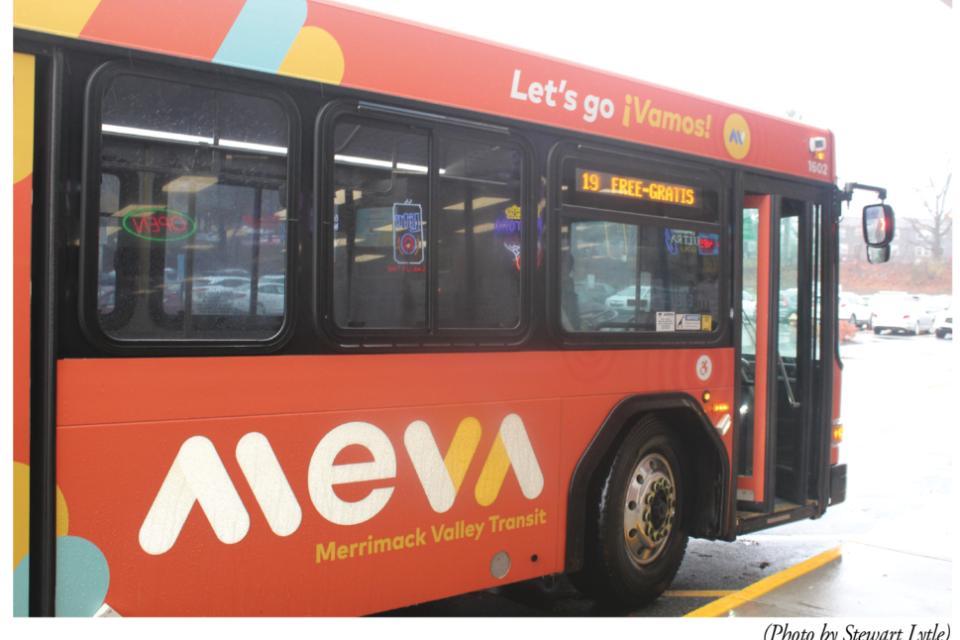REGIONAL – Powered by a state grant of $2.6 million, Merrimack Valley Regional Transit Authority (MEVA) will continue to operate fare free at least until July. At its February meeting, the MEVA board will decide whether to make fares free permanently.
To determine the full benefits of operating fare free, the Merrimack Valley Planning Commission has hired the consulting firm, Stantec. Its report on the study, which shows benefits that even MEVA administrator Noah Berger found surprising, will be completed next month and given to the board for consideration.
A public presentation will take place at the board meeting in February, Berger said.
Stantec has found that local hospitals are seeing more patients as a result of the free ridership, he said. Calling the study enlightening, Berger said, “We’ve proven it makes all the sense in the world.”
Riders and drivers are very interested in continuing the free fare program, he said.
To allow 13 regional transit authorities to operate fare-free, the Healey-Driscoll Administration awarded them $30 million in grants.
“Hundreds of thousands of Massachusetts residents rely on their Regional Transit Authorities to get to and from work, the grocery store, doctor’s appointments and school. We’re proud to be delivering this funding to help RTAs keep their service fare free to save money for riders and encourage more people to use public transportation,” Gov. Maura Healey said.
Lt. Gov. Kim Driscoll called the results of the free fare pilot program incredible. “More riders are saving money by choosing to take public transportation. We’re excited to be able to support the continuation of these programs with full state funding, which will significantly benefit our residents, communities, businesses and economy.”
MEVA launched its two-year pilot program in March of 2022 and extended it with additional funding for another year.
With revenues in a state of flux, Berger said MEVA has created a development department to administer non-profit organization to accept other sources of revenue, such as grants from local foundations, including the Barr Foundation, and businesses that benefit from MEVA’s ridership.
MEVA is also considering advertising on benches along the route and creating a digital QR code system for customers to pay for the ride if they can, he said.
“Everything is on the table,” Berger said. ♦




